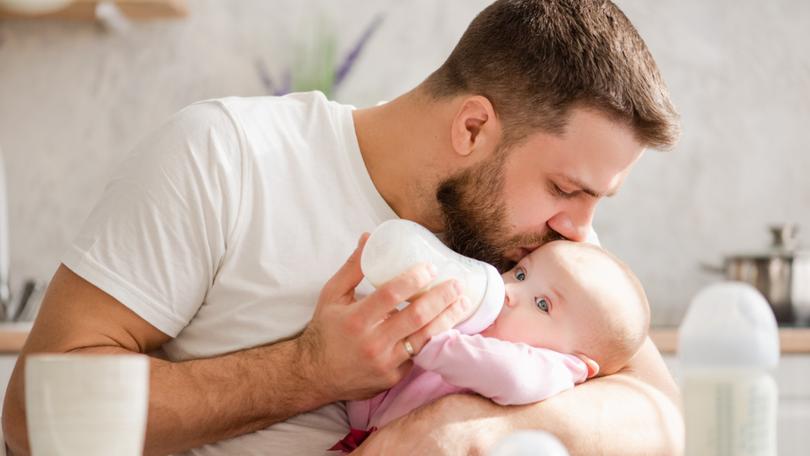Kate Pickles: Why fathers-to-be need looking after just like mums

Given the life-changing consequences – not to mention the physical pain – of having a baby, it is hardly surprising most of the attention is on the soon-to-be mother.
But that may be about to change, with a study arguing men should be given as much emotional support as women in the run up to parenthood.
In the report, many new fathers reported being ‘physically and emotionally tested to breaking point’, as well as experiencing bouts of exhaustion and postnatal depression symptoms.
Sign up to The Nightly's newsletters.
Get the first look at the digital newspaper, curated daily stories and breaking headlines delivered to your inbox.
By continuing you agree to our Terms and Privacy Policy.They added that they felt unable to reach out for help as they were not supposed to be the ones finding new parenthood difficult.
The academics called for clinical guidelines to be developed to give mental health support in the run-up to – and shortly after – becoming fathers.
This would help them cope with the physical, psychological and social changes in their lives during the transition to fatherhood, they suggest.
Researchers drew on findings from surveys, interviews and focus groups from the UK, Europe, Asia and the Middle East, involving more than 1,000 men.
Some had a positive experience with no mental health repercussions, but most faced challenges, they found, which had a detrimental impact on their overall mental health and wellbeing.
Fathers said they ‘often felt ill-prepared for the exhaustion and new responsibilities’ prompted by the arrival of a baby, which left little time for intimacy and quality time with their partners and that this ‘strained the relationship’.
They often felt excluded from the mother-child relationship, starting during pregnancy when they ‘felt like bystanders’, undermining their confidence in their ability to parent.
Other themes included insufficient information or antenatal classes that addressed their needs during the transition to fatherhood as it ‘wasn’t considered important’, according to the findings published in the BMJ.
In nearly half of the studies, fathers felt they needed to be better informed on parenting in general but also breastfeeding issues to better support their partners.
The research team, from the University of Newcastle, concludes: ‘It is clear fathers require equal emotional and practical support during this period, and therefore it is important that future tailored support is provided and that fathers are not considered a “forgotten entity”.’
Healthcare staff should also ensure adequate time is allocated to acknowledge fathers’ wellbeing during perinatal appointments, they suggest.
An NHS spokesman said: ‘Partners of women who are themselves suffering from anxiety, depression or more severe disorders are automatically offered a comprehensive mental health assessment and sign-posted to professional support if needed.’
